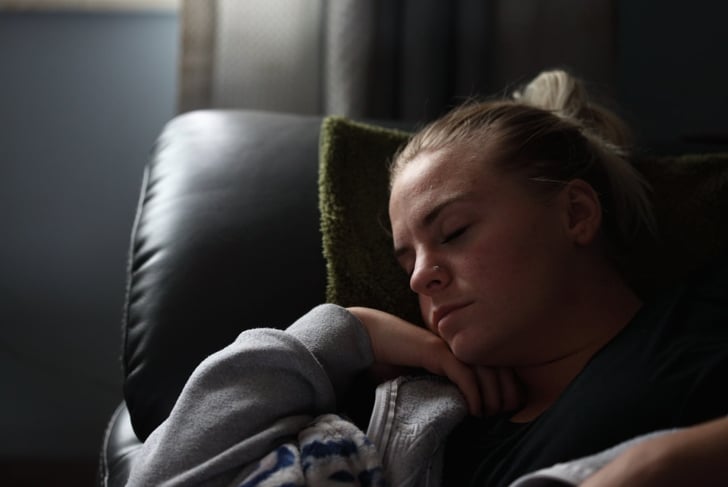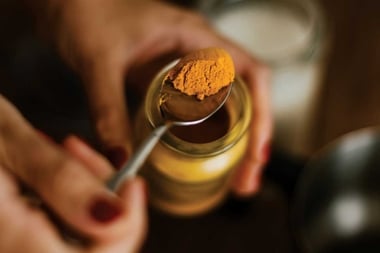
Overstaying its welcome
As we’re about to flip the calendar on a year since the onset of the COVID-19 pandemic, the good news is that even among the most at-risk populations, the vast majority recover from the acute illness. But that bright cloud sports a dark underbelly, which we’re seeing with the rise of the oftentimes debilitating “long-haulers syndrome.”
This post-viral illness lingers long after the acute infection resolves and can present with myriad symptoms ranging from joint pain to fatigue. While long-term data is still in its infancy, we are beginning to understand how the SARS-CoV-2 virus impacts the body and what we can do to support recovery.
The body on SARS-CoV-2
What’s striking about long-haulers syndrome is its various manifestations, likely due to the virus’s ability to bind to any body cells that contain angiotensin-converting enzyme 2 (ACE-2): tissues in the nose, lungs, kidneys, liver, blood vessels, immune system, brain, nerves, and muscles.
In the acute stage, this can cause a “cytokine storm,” resulting in hypercoagulability (blood clotting), vascular permeability, edema, widespread inflammation, and consequent tissue damage in multiple organs.
Theoretically, the long-term effects of inflammation, tissue injury, and latent viral load could manifest in diverse symptoms that may hang around for quite some time.
“I’m not yet fully recovered,” says Erica B., a 55-year-old college English professor in BC who is going into her sixth month of dealing with long-term COVID-19 symptoms. “I still experience greater-than-usual (though not debilitating) tiredness, as well as occasional lung symptoms.”
Patient-reported long-term COVID-19 symptoms
- fatigue
- insomnia
- brain fog and poor concentration
- shortness of breath
- joint pain
- chest pain
- weakened sense of smell
- chills or sweats
- loss of appetite
- reduced quality of life
Before developing COVID-19, Erica would walk her dog, tend to household chores, and do strength training and rowing, all of which she wasn’t able to do once she got COVID-19. “My life as I’d known it was more or less on hold for over four months.” Whenever Erica attempted to exercise and run errands after her acute infection, she would relapse into lung symptoms, post-exertional malaise, and fatigue.
“The fatigue felt like a cross between jet lag and hypoglycemia,” Erica says. “Like numerous ‘long-haulers,’ I developed a severe skin rash that took weeks to heal.”
Erica’s weakened lung function is common among those with severe viral pneumonias. It’s expected that although most COVID-19 survivors will be able to return to work and a normal life, a significant number of recovered patients may show abnormalities in lung function tests. It was at about the five-and-a-half-month mark that Erica felt she had enough energy to resume exercise and her regular activities, although she’s now rebuilding the fitness she’d lost.
Risk analysis
Although all populations may become infected by the SARS-CoV-2 virus and develop COVID-19, the data consistently shows that the elderly, underrepresented minorities, and those with underlying medical conditions are at an increased risk of severe disease and mortality from COVID-19.
Type 2 diabetes and obesity often underlie the health disparities in these groups, but the good news is that these conditions can often be well-managed with lifestyle changes. Getting ahead of obesity is challenging but of particular importance, as it’s been documented that vaccines are less effective in individuals with obesity.
It is well-established that eating patterns of the Western diet contribute to the prevalence of type 2 diabetes and obesity.
The Western diet has also been shown to inhibit T-cell and B immune cell functions, which are crucial for host defence against viruses. Notably, T- and B-cell counts have been found to be low in COVID-19 patients.
Underlying conditions and severity of COVID-19
- Patients with chronic obstructive pulmonary disease (COPD) have an increased risk of developing severe pneumonia and having poor outcomes once they develop COVID-19.
- Hypertension, prediabetes, and obesity are major risk factors for cardiovascular and cerebrovascular events (stroke) in patients with COVID-19.
- Obesity is a risk factor for developing COVID-19, and mortality from COVID-19 is higher in patients with obesity.
Looking into the future
The extent to which COVID-19-related myocarditis (heart inflammation) may affect cardiovascular health in the long term has yet to be seen. Likewise, the long-term effects of intracranial hemorrhage and stroke from COVID-19 are, so far, unclear but likely correlated to the damage inflicted on the nervous system.
It’s projected that some patients with COVID-19 may be at increased risk of neurological disease in the future, as there have been instances of dementia in the elderly following a viral illness, including respiratory viruses such as influenza. The SARS-CoV-2 virus can remain inside neurons without being acutely toxic and, therefore, may theoretically lead to neurological symptoms and nerve degeneration months or years after acute infection.
It’s also possible that COVID-19 may increase the risk of anxiety, depression, post-traumatic stress disorder, insomnia, and psychosis down the road. Regularly checking in on mental health and seeking support when not feeling well will be of particular importance both for those with long-haul COVID-19 and for those who have already recovered.
Reclaim health for the long haul
Although data is lacking on the direct relationship between nutrition therapy and COVID-19 outcomes, we can infer the likely benefit of eating a diversity of vegetables, lean protein, and healthy fats in lieu of sugary, carbohydrate-rich, and processed foods. Studies in psychoneuroimmunology have shown that a healthy lifestyle, regular exercise, balanced nutrition, quality sleep, and a strong connection with loved ones have positive effects on the immune system.
Most importantly, practise self-compassion. Go easy on yourself with resuming work and high-intensity exercise, and sticking to any self-imposed timelines for recovery. Take the time to rest, engage professional help for dealing with complicated feelings, and redefine your measure of productivity until you feel more like the “you” that you remember.
Disclaimer
Information is current as of the writing of this article. Some long-term COVID-19 symptoms are patient-reported and have not yet been appraised by rigorous research.





